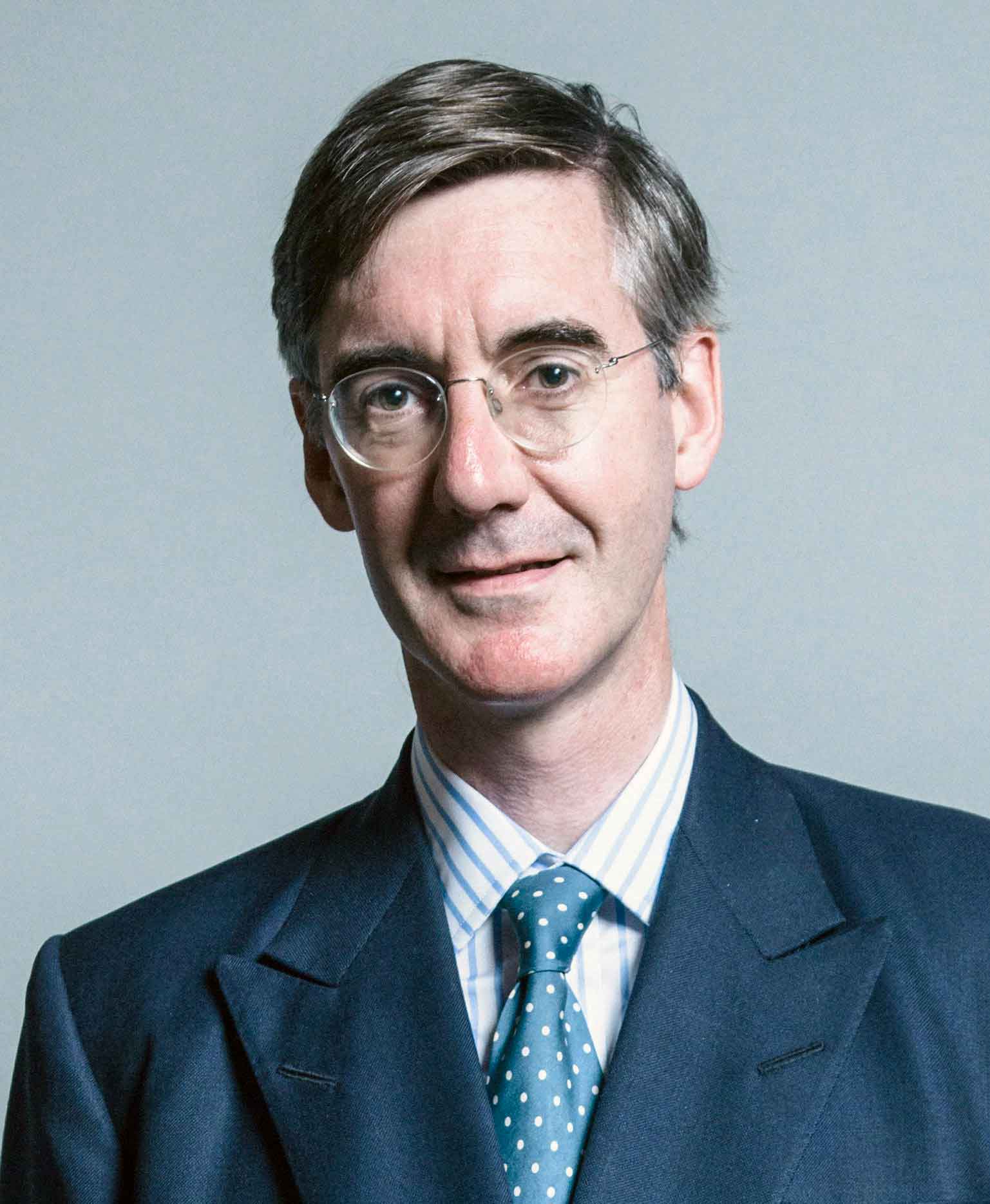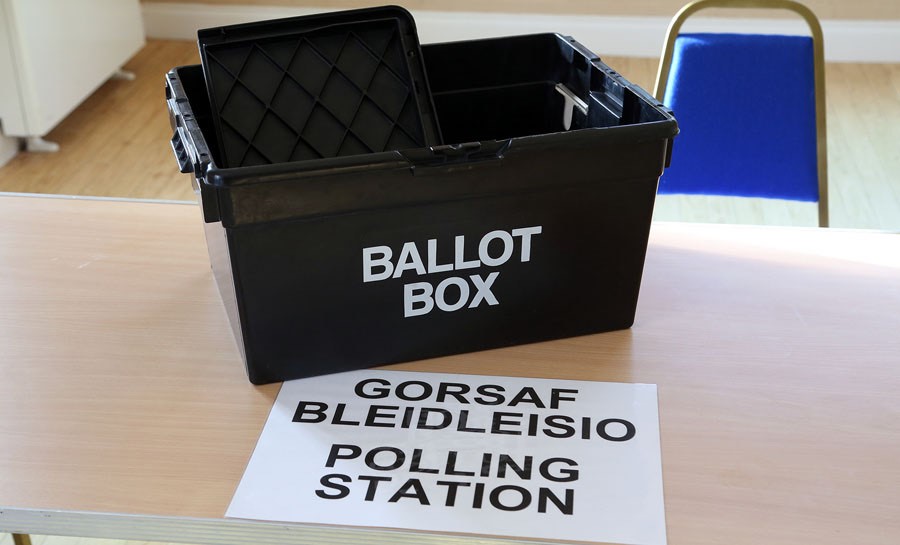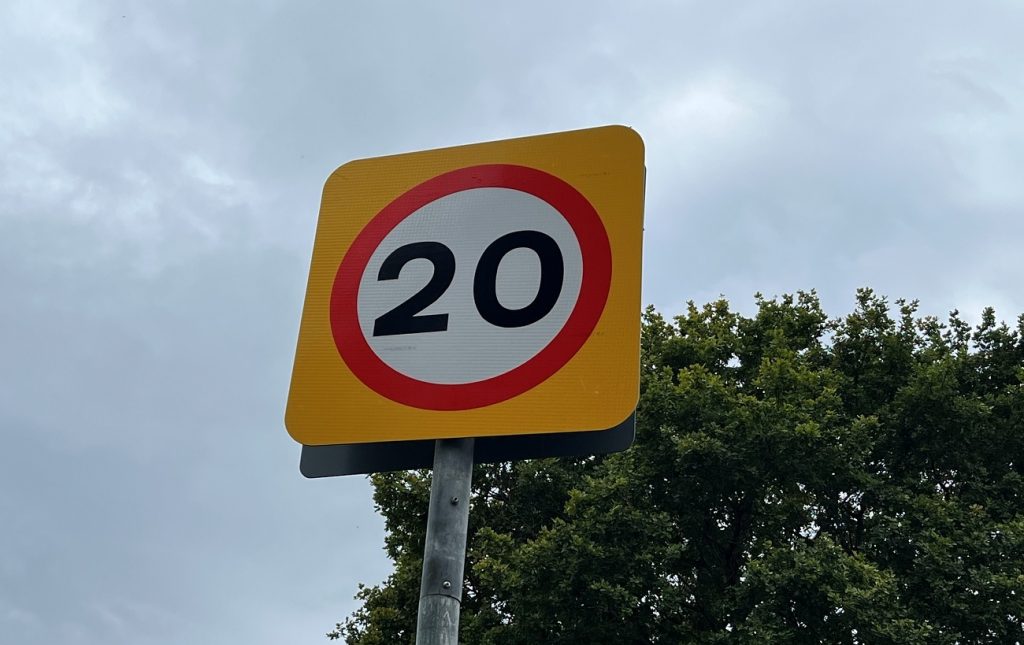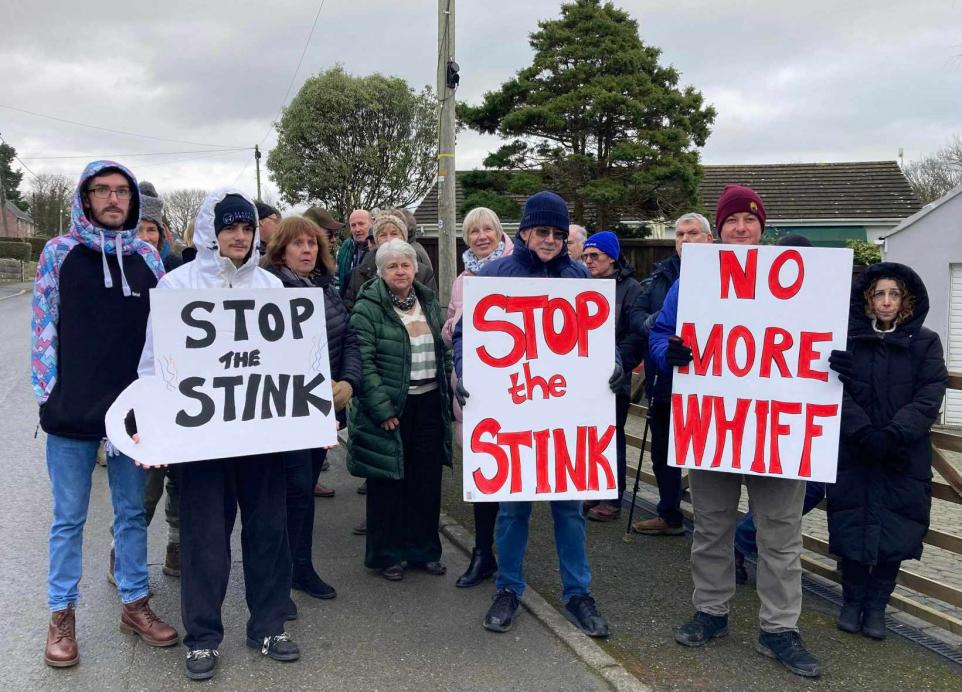Politics
Counting down Brexit by numbers

FROM March 30, Good Friday, the UK entered the final year of its membership of the European Union.
There have been recriminations on both sides of the EU debate since the UK voted by 52% to 48% to leave the European Union on June 23, 2016.
Leave side voters are divided by their victory over what type of Brexit they want, with a tiny rump of Conservative MPs apparently calling the Parliamentary tune, aided and abetted by a cavalier approach to the truth by government ministers and ever dissipating ‘red lines’. Never can so many on the victorious side have been so angry about winning or so unsure about what to do next.
On the Remain side, recriminations are even more intense. Some are sticking to the ‘it ain’t over ‘til it’s over’ line with increasing desperation, while there are claims of foul deeds committed by the Leave campaign. Some remainers have taken to striking the attitude of Violet Elizabeth Bott – who threatened to ‘thcweam and thcweam and thcweam’ until she was sick unless she got her way.
The refusal to acknowledge that crowding 17.5m voters were prepared to vote leave and meant it is, perhaps, the most revealing and troubling attitude of some dedicated remainers. The people were misled, lied to, duped; there were terrible lies told by the Leave campaign which swayed them; they did not know what they were voting for and had they known they would not have voted to Leave.; there is a need for a second referendum, the unspoken rationale for which is that Remain campaign won’t be as lazy and complacent next time around and voters will see sense.
On March 29, Jane Dodds, the Welsh Liberal Democrat leader said: “With the devastating consequences of Brexit now clearer than ever, it is right the public are asked whether they still want to continue down this path.”
The other side of the coin is the claim by Leave voters that those who voted to remain and are still fighting their corner are – in some way – unpatriotic and doing the UK down. That is an especially popular line from fringe Conservative MPs keen to wrap themselves in the Union Flag abandoned after UKIP’s implosion and plays well in newspapers whose owners reside overseas or in tax exile. Leavers say the argument is settled in a way that they would never have accepted had the vote gone the other way and by the same margin.
On March 29, Jacob Rees Mogg compared Remain campaigners to ‘the Japanese soldier [Hiroo Onada] who finally surrendered in 1974, having previously refused to believe that the Second World War had ended.”
With no end in sight to the sniping – and anyone who thinks that next March will be an end of it is sorely mistaken – it is perhaps worth looking at some numbers both relating to the Referendum result and which might have had an impact upon it.
THE VOTE AND THE POLLS
On June 23, 2016, 72.2% of just over 46.5m eligible voters cast their ballots in the Referendum. That means that almost 33.6m voters took part in the Referendum.
Of those 33.6m voters, 17.4m voted to leave the EU and 16.1m voted to remain.
27.8% voters – a fraction under 13m – did not vote one way or the other.
In percentage terms 52% voted to leave, 48% voted to remain.
In July 2017, ComRes reported:
- 63% of over-65s, but just 28% of 18-24s, voting Leave. Other age ranges were less divided; almost four in ten 25-44 year olds (37%) voted Leave.
- 78% of those with a degree voted Remain, while 69% of those whose highest educational attainment was a GSCE grade D-G voted Leave.
- Leave voters were least likely to trust either the Government or Parliament – almost two-thirds ‘distrust greatly’ both institutions.
- Leave voters are unconvinced of the merits of immigration. While 91% of Remain voters say it ‘enriches’ cultural life, only 9% of Leave voters think the same.
While the majority of the British public still think the government should press on with Brexit, they are far more finely balanced over what sort of Brexit it should be.
A further YouGov poll of just under 5,000 respondents carried out the same month as the ComRes poll showed that 61% of Leave voters think significant damage to the UK’s economy is a price worth paying for Brexit, while the remainder where divided almost equally between those who said it was not and those who ‘did not know’.
However, that poll revealed a significant shift when the same Leave voters were asked whether they thought either losing their own job or a family member losing theirs was a price worth paying. 39% of Leave voters were prepared to throw both themselves and family members under the bus, with 61% either saying no or don’t know to the same question.
That suggests that leave voters are prepared to react with equanimity to the thought of an abstract ‘someone else’ bearing any adverse consequences of Brexit, but less enthusiastic when it comes to bearing adverse consequences themselves.
WHAT BREXIT?
Those results underline the UK Government’s quandary over meeting voters’ expectations on Brexit and further highlight a significant factor that was, perhaps, lost in the Referendum campaign and upheaval afterwards; namely, voting leave did not decide the terms of the UK’s departure from the EU.
Voters were not electing Vote Leave – fronted by Boris Johnson and Michael Gove; instead, voters were presented with a binary choice without any gloss.
The question on the ballot paper was:
‘Should the UK remain a member of the European Union or leave the European Union?’
The question was solely about giving up (or not) membership of the European Union: there was no mention of free movement, the jurisdiction of the European Court of Justice, or an end to European-style regulation. There was no option to vote leave but remain a member of the European Economic Area. There was no option to vote remain but renegotiate the bits of EU membership you didn’t like. There was not even a requirement that Parliament to treat the result as final and binding.
The public advised Parliament that it wanted to leave the European Union and it is up to Parliament – having decided to follow the Referendum result with action to depart the EU – to determine the terms of departure.
Former industrial areas were much more likely to vote leave than to vote remain. And a clue to why that is the case can be found in the UK Government’s own statistics.
WINNERS AND LOSERS
We looked at a UK Government Briefing Paper on the employment of EU Nationals in the UK.
Across all regions, EU workers are more likely to be working in lower-skilled roles than the workforce as a whole. The proportion of EU nationals employed in elementary occupations was lowest for those living in London and highest in the East Midlands.
EU workers were also less likely to be working in high-skilled managerial and professional occupations than the workforce as a whole.
Although a higher share of EU nationals than UK nationals work in low-skilled occupations, EU nationals are more likely to be “over-educated” for the job they are doing, meaning they hold a higher qualification than was typical for people working in that occupation.
But the Briefing Paper’s findings were, perhaps, most illuminating when it came to employment levels within certain sectors in the decade leading up the Referendum.
Overall, the number of people in employment in the UK increased by around 2.5 million between 2006 and 2016, but while employment grew in some sectors it decreased in others. Even when there were periods of economic growth, more EU nationals found employment than their UK counterparts.
Well over 700,000 UK nationals stopped working in manufacturing industry between 2006 and 2016. But the number of EU nationals employed in manufacturing soared by just under 200,000. In construction, almost 400,000 UK nationals stopped working in that sector in the decade before the Referendum, but around 100,000 EU nationals found work in construction. Around 300,000 UK nationals ceased working in the automotive industry – wholesale, retail, repair of vehicles – while just over 200,000 EU nationals found work within it. And while 100,000 UK nationals ceased working in transport and storage, 100,000 EU nationals found work in that sector.
Those figures – combined with the polling evidence – suggest that voters in former industrial areas did not only perceive a threat to their economic security from membership of the EU and EU immigration to the UK, but ACTUALLY experienced adverse economic consequences as the result of inward migration of EU nationals into their regions and the subsequent displacement to EU immigrants of traditional sources of employment opportunities.
Tellingly, in the service sectors centred upon the major urban areas which voted remain there were greater employment opportunities and fewer EU migrants took up posts in those sectors.
In light of those figures, it can hardly be a surprise that areas which voted Leave by the greatest margin – notably the North West and North East of England – are precisely those areas in which the greatest number of manufacturing jobs were lost.
That economic data also suggests that the idea that re-running the Referendum to get ‘the right result’ would only serve to underline the stark economic and social divisions between two entrenched classes of voter.
A QUESTION OF CLASS
The British Election Study, which provides independent analysis of voting patterns and voters’ decision-making, found that one of the defining features of Leave voters outside of cosmopolitan areas was a nostalgic view of Britain’s past and a desire to turn back the clock.
A sense of national decline was a defining feature of the divide between Leave and Remain voters. The Study asked its respondents (who were screened to represent the proportions of the actual result) how much they agreed or disagreed with the statement ‘things in Britain were better in the past’. Fewer than 15% of those who strongly disagreed that things in Britain were better in the past voted to leave the EU while nearly 80% of those who strongly agreed did so.
The Study established that those who viewed themselves with less control over their lives and destinies were more overwhelmingly more likely to vote leave on the basis that leaving the EU would permit them to establish greater control over their individual destinies.
Combined with the economic data, the Survey’s results support the proposition that social class was the battleground of Brexit and that attempts to overturn the Referendum result will only increase the sense that ‘the classes’ live in an entirely different world – with different expectations, a different world view, and with greater social capital – than ‘the masses’ – who feel forgotten, diminished, and left behind by shining metropolitan visions of what it means to be a UK citizen in the 21st century.
News
Return your postal vote and make your voice count

POSTAL votes for the upcoming Police and Crime Commissioner election can be returned as soon as received.
Those registered should have received their postal vote information and now is the time to fill it in and pop it back in the post.
You must complete the postal voting statement and your ballot paper for your vote to be counted.
Your postal vote pack includes full instructions on how to complete the form and voting ballot.
There will be two envelopes – complete the postal voting statement and include your ballot paper in envelope A before placing that in envelope B, ensuring the freepost return address is visible.
This helpful YouTube video shows how to complete the postal vote documents.
If you need help with your postal vote form you can also call 01437 775844
There are some changes to postal vote submission and you will need to complete a form with our staff if you decide to hand your postal vote in to a polling station or County Hall reception.
News
Transport Secretary champions 20mph speed limit changes in Wales

IN a recent address to the Senedd, Cabinet Secretary Ken Skates unveiled a comprehensive three-phase plan aimed at refining the implementation of 20mph speed limits across Wales. This initiative is part of a broader effort to enhance road safety in residential areas, particularly near schools, hospitals, and other sensitive sites.
Skates emphasised the Welsh Government’s commitment to incorporating the views of Welsh citizens directly into the decision-making process. “We’ve started by listening,” Skates stated, underscoring that the voice of the community is pivotal to the transport policy development. The approach includes a significant public engagement campaign set to run until July, where feedback will be sought from a diverse group of stakeholders including bus drivers, emergency service personnel, businesses, and local council representatives.
The Welsh Government plans to work in close collaboration with local authorities to assess and prepare for the proposed changes. This preparation will involve revising guidelines to determine which local roads might be exempt from the new speed limit, with an updated version expected to be published in July. Following this, councils will initiate detailed consultations from September to ensure community needs are fully addressed.
The phases of the plan as outlined by Skates include:
- A robust national listening programme to gather input on road safety concerns from across the community.
- A partnership with local authorities to prepare for the changes, encouraging public participation in identifying areas where the 20mph limit should be applied.
- Implementation of the changes on the ground, with local authorities adjusting speed limits in accordance with new guidelines and community feedback.
The Cabinet Secretary reiterated the primary aim of the policy: “The principal objective is to save lives and reduce casualties on our roads. We continue to believe 20mph is the right speed limit in key community areas, and what I am doing now is listening to what people want for the roads in their communities, and pressing ahead with refining the policy.”
Skates also made it clear that the final decision on the extent of change would not solely rest with the Welsh Government but would significantly depend on the input from local authorities and the public. Information on how residents can participate in this consultation process will be provided on the Welsh Government’s website, ensuring that all community voices can contribute to shaping the future of their local transport policies.
Responding to a press release from Labour’s Cabinet Secretary for Transport, Natasha Asghar MS, Shadow Transport Minister, said: “Whilst I am waiting with bated breath to hear the Cabinet Secretary outline his transport priorities, I fear all this talk of changes to the government’s flawed 20mph scheme is just another example of Labour ministers paying lip service.
“Ministers might be making all of the right noises on 20mph, but if the Cabinet Secretary is serious about listening to the people of Wales, then he will accept that this law was a terrible mistake and repeal it.
“Only the Welsh Conservatives would scrap this disastrous law and get Wales moving.”
News
NRW issues new enforcement notice at Withyhedge

NATURAL Resources Wales (NRW) has taken further enforcement action at Withyhedge Landfill in Pembrokeshire, setting out the urgent steps its operators must take to address the site’s ongoing odour and landfill gas emission issues.
NRW has issued site operators Resources Management UK Ltd (RML) with a further Regulation 36 Enforcement Notice, which requires the operator to deliver a series of actions by specified deadlines – the first due to be achieved by April 21.
The actions include implementing measures relating to gas management infrastructure, further capping areas of the site, and improving interim cover arrangements as the work progresses.
Each step outlined in the Notice must be completed by May 14.
However, the Notice stipulates that most works must be completed before May 8.
The measures are intended to address the odour issues experienced by communities surrounding the site.
Although actions set out in the Section 36 Notice issued in February to prepare and cap a waste cell and install gas infrastructure to contain and collect landfill gases appear to have been completed, the site operator has identified further areas of the site which could be causing problems.
RML submitted their plans to resolve these issues last week.
The proposed solutions informed the actions included in a new S36 notice issued last week.
The new enforcement activity requires the operator to deliver the additional steps they need to take.
If the actions outlined in this new Notice are not complied with, NRW will not hesitate to take further action. The Welsh Government agency will consider all the regulatory tools available, including issuing a Section 37 suspension notice.
A Section 37 Notice would end operations at Withyhedge
Huwel Manley, Head of South West Operations, NRW, said: “NRW is taking additional enforcement action to ensure RML Ltd. takes the urgent action they have identified needed to control the odour issues at Withyhedge Landfill.
“We fully understand the growing discontent from the affected communities, and we feel that it is unacceptable for residents and visitors to the area to continue to be affected by these odour and landfill gas emissions.
“We want to reassure everyone that we are committed to ensuring RML Ltd. deliver the actions they have identified and that they work quickly to resolve this issue.
“While the pressing work required by the operator progresses over the coming days and weeks, the site remains under investigation, and we will continue our regulatory presence.
“Nothing is off the table. If the series of actions required in this Notice are not complied with, we will have no hesitation to take further enforcement action, considering every option available to us under the regulations, including suspending the environmental permit if appropriate.”
Will Bramble, Pembrokeshire County Council Chief Executive, said: “We are extremely disappointed that RML, the company managing the Withyhedge landfill site, has not delivered the necessary action to stop the completely unacceptable odour emissions.
“We fully support NRW’s additional enforcement action and continue to work closely with them to correct the situation.
“We also support NRW’s intent to take further action should it fail to meet the May 14 deadline, including considering suspending the permit.
“Geotechnology is monitoring under the direction of the air quality cell and liaising directly with residents affected.
“We will ensure the data is made available to the public at the earliest opportunity.”
The controversy over £200,000 in donations to Vaughan Gething’s Labour leadership campaign by companies linked to Withyhedge and a further substantial personal donation by company director David Neal continues to dog Wales’s new First Minister.
As revelations continue to bubble up from under the cap that Mr Gething has tried placing on them, the smell from Withyhedge has reached Cardiff Bay. It is beginning to stink out the Senedd.
More details of that story are elsewhere in this week’s Herald.
NRW requests that instances of odour from the landfill continue to be reported via this dedicated form: https://bit.ly/reportasmellwithyhedge.
-

 News5 days ago
News5 days agoPolice issue update on the search for Luke, missing from Pembroke Dock
-

 News7 days ago
News7 days agoPembrokeshire hostel manager narrowly avoids jail sentence
-

 Sport6 days ago
Sport6 days agoHerbrandston Clinch Promotion to Division One
-

 News4 hours ago
News4 hours agoPolice and air ambulances at ‘serious incident’ at West Wales school
-

 News4 days ago
News4 days ago20mph U-turn: Some roads will return to 30mph following public outcry
-

 Community4 days ago
Community4 days agoMiracle pup finds her forever home after heart-wrenching journey
-

 Crime7 days ago
Crime7 days agoPembrokeshire car salesman caught driving on cocaine
-

 Community1 day ago
Community1 day agoCounty Hall to offer space for community banking




































